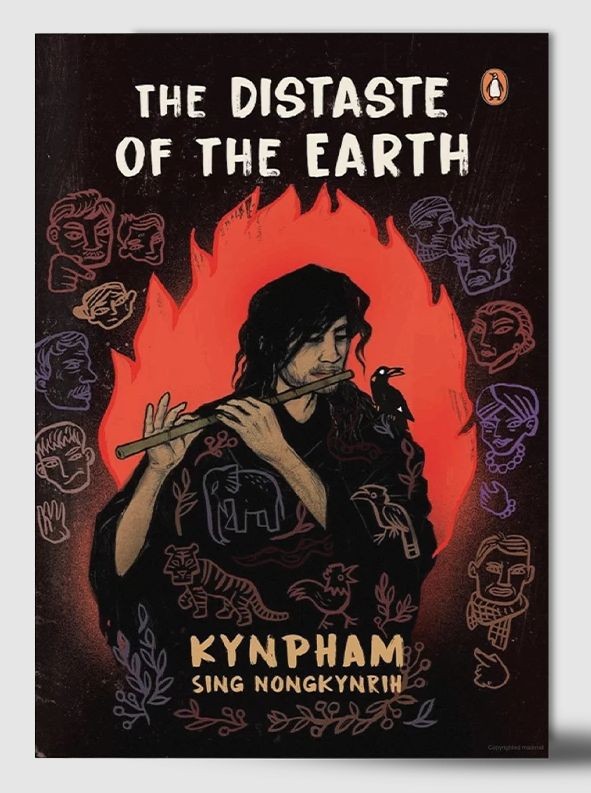
Lhütü Keyho
Khelhoshe Polytechnic Atoizu, Zunheboto
I will begin my take on this book in the middle, the part where most of what I love about it is found—the Ka Dorbar U Laiphew Jingthaw, the council of diverse creatures. I also must start there because I have to begin somewhere; and this novel, not one for straight lines, circles and weaves and slants and echoes and returns.
What we find there, then, is not merely a meeting of diverse creatures of the wild and one man, but a profound blending of many fables and a “little-known legend”, melded and magnified with the insight and imagination of a rare, enlightened writer. The result of such a meeting is that we find ourselves offered herein with a prescription that would remedy the many ailments plaguing both the physical and mental realms of our times. “Unyoke yourself,” Nongkynrih counsels. From what you must unyoke yourself, I leave it for you to discover for yourself in your own reading. Let me tell you this much: Within the novel’s universe, Manik Raitong—the tragic hero, as the name itself suggests—wronged by God and humankind (and therefore everyman), surfaces from it parched of his anger and bitterness, the dark emotions evaporating like “dewdrops in the sun”.
After journeying alongside Manik through more than half the book, and having suffered with him all his unthinkable trials—cruelties only humans can inflict on a fellow human—you start to hope his story might end on that fleeting moment of solace he finds. However, the rules of good writing dictates otherwise. The tragic hero’s path rarely allows such mercy; fate, choice, and a fatal flaw inevitably conspire to pull him down. Manik’s hamartia—his sole tragic flaw— is simply that he was born human. Yet he hasto bear the lot of the tragic hero. Pain, suffering, loss and torment—repeated enough times to fill all of what was supposed to be the best years of his life—that was Manik’s portion. But again, the author knows that this alone does not make a tragic figure a tragic hero. Our beloved hero is endowed with many redeeming qualities: courage, loyalty, a deep, unyielding love for nature and its creatures and what not. However, if I may say so,his defining trait is him, a “pauper”, possessing balls big enough to give bananas even to the Mahadei— a queen!
It is not merely Manik’s ordeals and his conquests that make the reading of this book memorable. A sense of deep familiarity seeps through every page, and anyone well-versed in the classics will sense that this familiarity arises from the author’s skillful portrayal of characters and the profound, vivid dialogue exchanged between them. The drunken revelries of Sapho and the regulars at Kong Lyngkien’s pata; The seasoned-bodied-no-nonsense Lyngkien and her many dead husbands; the astute political debates in her pata; the antics and follies of these characters; the women’s impassioned outbursts in Manik’s final moments; the fervent exchanges of affectionate communication between Leing and Manik; the feigned madness of the principal character; and the unfolding resolutions in the love lives of subplot characters—all harken to the writings that heralded and defined the golden age of English literature.
“The Distaste of the Earth” resonates with the enduring qualities of classic literature, yet it never feels derivative or overdrawn. The author’s language, grounded in the simple, everyday speech that the Romantics hailed as the true language of poetry, enhances the novel’s authenticity and impact. Nongkynrih remains true to the mission he began in Funeral Nights, his debut novel—to uncover the soul of the Khasi race and to highlight the shared humanity and universal wisdom embedded in their way of life and perspective.
The Distaste of the Earth is available for purchase on Amazon.




